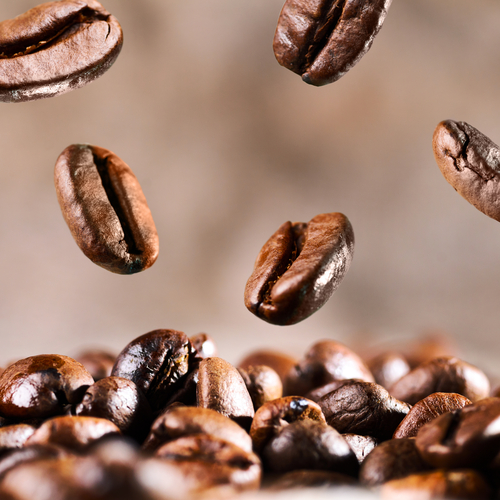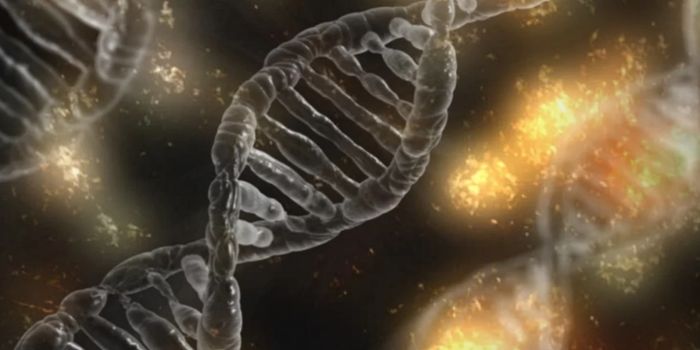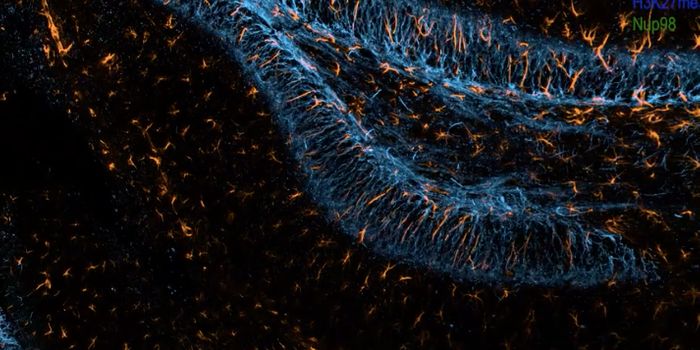Coffee drinking is often associated with lower rates of degenerative diseases, from Parkinson's to cancers. Two recent studies support one theory why: coffee protects DNA from breaking, and quite shortly after it is consumed.

A Kaiserslautern University study published in the February 2015 European Journal of Nutrition found that people who drink three cups of dark roast coffee blend daily possessed a significant 27 percent fewer DNA strand breaks in their white blood cells than water drinkers-after only a month.
Earlier, in a 2011 issue of Molecular Nutrition and Food Research, some members of the same group published an intervention study of 33 healthy people. They found that DNA-protective effects occurred after daily ingestion of 750 mL of freshly brewed coffee rich in both green coffee bean and roast products. The study involved four weeks of wash-out, four weeks of coffee intake, and four weeks of a second wash-out.
During coffee ingestion, oxidative DNA damage was markedly reduced in white blood cells. Glutathione levels and GSR-activity were up. Body weight/body fat and energy/nutrient intake were down. The report concluded that drinking three to four daily cups of Arabica coffee positively impacted health, "as evidenced by reduced oxidative damage, body fat mass and energy/nutrient uptake."
In the new study, the German group decided to look at a specific kind of oxidative DNA damage called spontaneous DNA breaks. Oxidative damage occurs due to an excess of "free radical" reactive oxygen species, which can damage all of the components of a cell. When DNA is damaged, the body can't always engage the proper DNA repair mechanisms. Spontaneous DNA breaks can lead to genome rearrangements that act as markers for many health problems, including cancer.
The team, whose senior author was Kaiserslautern University professor Elke Richling, enlisted 84 men aged 19 to 50. The volunteers were of healthy weights. They dieted well, were non-smokers, and did not use drugs or alcohol on a regular basis. For the study, they consumed either three cups (750 ml) of fresh brewed coffee, or plain water, every day for four weeks. The coffee was a special roasted and blended Arabica variety, served black. Volunteers were allowed one teaspoon of sugar if they wanted. Other caffeinated products were avoided throughout.
Spontaneous DNA strand breaks were measured before and after consumption.
At the outset, both groups possessed similar levels of spontaneous DNA breaks. But in the drinking phase, spontaneous DNA strand breaks slightly increased in the control (water only) group, whereas they significantly decreased in the coffee group, leading to a 27 percent difference, the team reported. "Food frequency questionnaires indicated no differences in the overall diet between groups, and mean body weight during the intervention phases remained stable. The consumption of the study coffee substantially lowered the level of spontaneous DNA strand breaks in white blood cells."
Establish your company as a technology leader. For 50 years, the R&D 100 Awards, widely recognized as the "Oscars of Invention," have showcased products of technological significance. Learn more.
The research, to a certain extent, confirms other earlier studies-one from some of the same team members showing 38 people experienced marked protection from oxidative DNA damage after only five days of drinking fresh filtered coffee brew. Another similar earlier study, out of the Medical University of Vienna, showed a very small reduction in oxidative DNA strand breaks in peoples' lymphocytes even after drinking only instant coffee.
All of the above studies were small. And the February 2015 German study only included males. But a Japan National Center for Global Health and Medicine study in mid2014 did find compatible results among females, among a slightly larger group of volunteers.
Some caveats-and kudos
"Stimulated by our earlier results, coffee industries are at present trying to produce coffees with increased DNA protective properties," Medical University of Vienna oncologist Siegfried Knasmuller told Drug Discovery & Development. He was not involved in the recent European Journal of Nutrition study, but he led the Vienna trial mentioned above. He also led a rat study that examined the mechanism behind coffee's DNA effects: both coffee's caffeine, and its UDP-glucuronosyltransferase, can retard DNA migration linked to DNA damage, and neoplastic hepatic loci.
""Tchibo" is making a brand-- with increased chlorogenic acid and N methylpyridinium levels--which was tested in this recent study," Knasmuller told Drug Discovery & Development. "The results of the paper are interesting, as they show that this coffee reduces the extent of DNA migration, which is attributable to single and/or double-strand breaks. Meanwhile, our findings with "normal coffee" were confined to the observation of reduced formation of oxidised DNA bases."
However, Knasmueller told Drug Discovery & Development: "The main question is if this leads to the improvement of human health. In the case of `comet assays' which the authors performed, it is not clear if they are associated with diseases such as cancer. And no firm conclusions can be drawn if reduction of comet formation prevents cancer. Theoretically, this could be the case, as double-strand breaks of the DNA lead to chromosomal aberrations (CA) which are known to reflect cancer risks in humans. But since the authors did not analyse CAs or micronuclei which refect CAs, this is only an assumption."
Another recent study
A Japan National Center for Global Health and Medicine study in mid-2014 offered more indirect evidence of the ability of coffee to protect DNA.
Published in Nutrition and Cancer, that study examined the link between coffee consumption, and concentrations of urinary 8-hydroxydeoxyguanosine (8-OHdG), a biomarker of systemic oxidative DNA damage and repair, among 507 healthy subjects (298 men and 209 women aged 21 to 67 years old). Adjustments were made for age, sex, smoking status, body mass index, job type, and fasting blood glucose in multivariable regression models. Also examined: any potential association with green tea consumption.
Urinary 8-OHdG concentrations dropped in women drinking two to three cups of coffee per day showing the lowest mean of urinary 8-OHdG concentrations. That link was "largely attenuated after further adjustment for serum ferritin concentrations, a marker of body iron storage," the group reported. "Green tea consumption was not associated with urinary 8-OHdG concentrations."
Their conclusion: "Coffee drinking may be associated with decreased systemic oxidative DNA damage through decreasing body iron storage in women."
Source: Drug Discovery & Development










